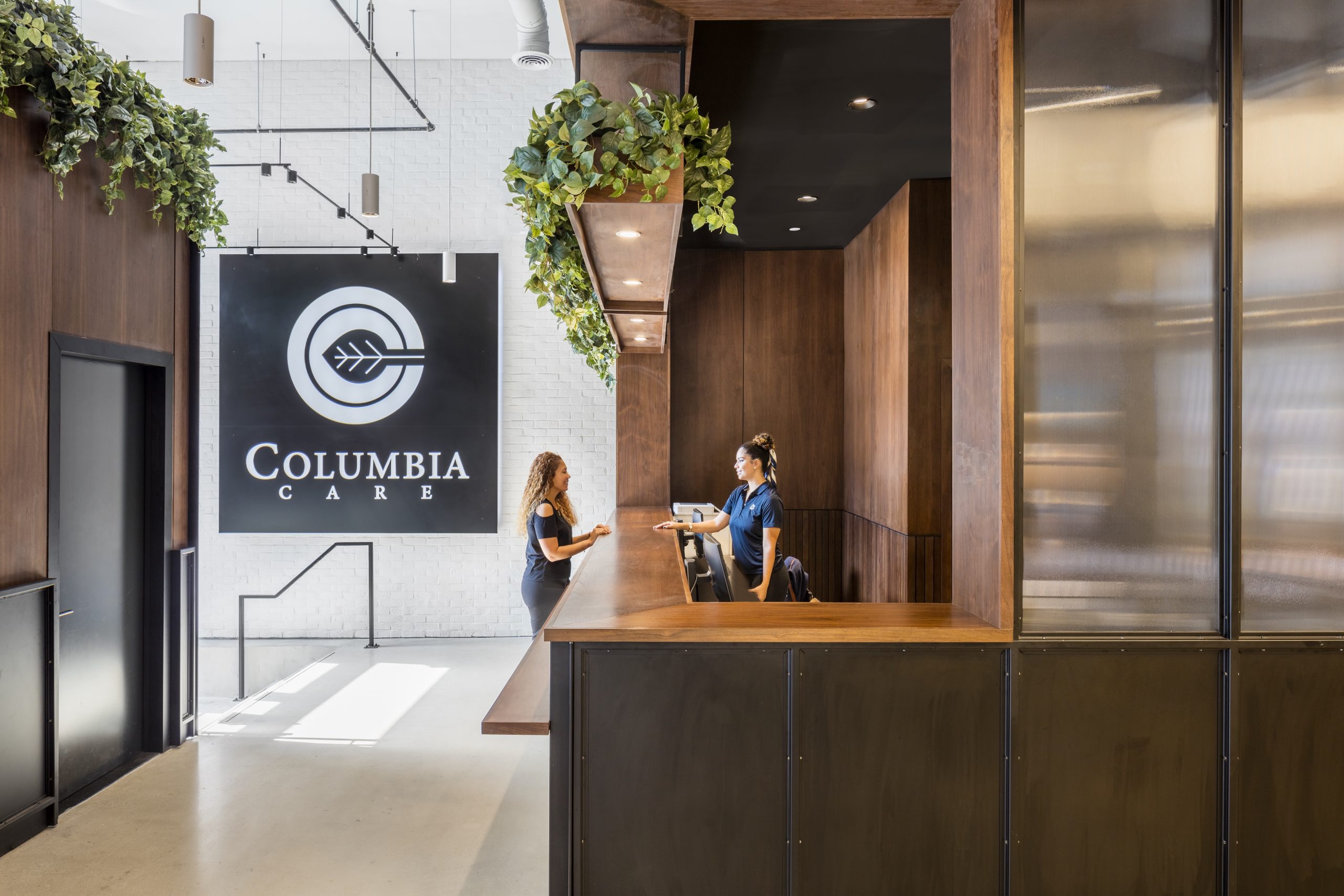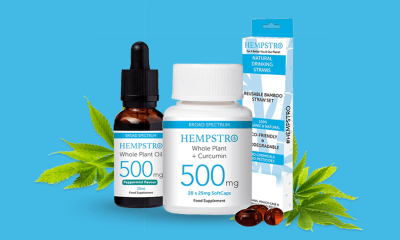More UK patients to benefit from medical cannabis thanks to new capsule.
From chronic pain to psychiatry, specialist doctors believe this medical cannabis capsule to be a ‘game changer’ for patients.
Medical cannabis by way of a simple capsule is available for the first time in the UK.
Columbia Care has produced the powder-based formulation which expert doctors say will allow for a greater number of patients to avail of medical cannabis treatment in the UK than before.
This is the first capsule of its kind and the first dose-metered medicinal cannabis product to be manufactured in the UK. The capsules are part of Columbia Care’s trademarked Ceed medicinal product range.
Formulated with a portfolio of primary and secondary cannabinoids and backed by Columbia Care’s US patient-led data, the capsules are available in various THC and CBD doses, enabling prescribing physicians to offer proven, cannabis-based medicinal solutions with a degree of precision previously unavailable in the UK market.
Why is this significant?
Given the prevalence of capsule form medicines in the world, you might ask, why is this news?
Until this point in the British medical cannabis sector, doctors have had a choice of two product categories to prescribe from. Patients have either received an oil-based solution to take sublingually – under the tongue – or cannabis flower to vaporise.
Adding a capsule into the equation opens the door to such therapies for those who aren’t capable of accurately measuring cannabis oil. Equally, many patients are averse to vaping cannabis flower.

Dr Rosemary Mazanet, MD, PhD is Chief Scientific Officer at Columbia Care. She believes this is an important step in progressing medical cannabis therapies for UK patients.
“If we’re going to treat this like a medicine, let’s treat it like a medicine!
“The pharmaceutical industry has known forever, that different forms that have different onset and offset times are very important to the management of patients.”
The New York-based CSO said this capsule has the potential to work in a complimentary capacity for patients and doctors alike. It can be prescribed for maintaining a steady state of cannabinoids in the blood level or for episodic use.
What do physicians think?
Dr Anthony Ordman is a leading pain management specialist with 30 years’ NHS experience. He founded the Royal Free’s Pain Management Service and has dedicated his career to helping those with chronic pain. Dr Ordman is Honorary Medical Director at Integro Medical Clinics, a privately held medical cannabis practice where this capsule is available to patients. At the time of interview, he said he began to write medical cannabis prescriptions at Integro a year ago.
Dr Ordman referred to a particular case for which it is hoped this treatment will make a difference. That of an elderly lady who lives alone and suffers with debilitating nerve pain, who was unable to benefit from conventional pain medications. He believes she could find a solution from this new, precise delivery method.
“We started this lady on a cannabis oil. But this was difficult for her to use for two reasons.
“Unfortunately, her eyesight wasn’t quite good enough to see the gradations on the measuring dropper, and the dropper was difficult for her to handle. She lives alone, and there was no one to help her. Secondly, the oil itself upset her digestive system so much that she can’t tolerate it. So, we had to stop the oil for those reasons. Otherwise, we would steadily increase the dose.
“Again, for similar reasons, we thought using the flower, which needs fine manipulation to put it into the vaporizer would be difficult for her. Ordinarily, we might have given up at this stage, but the newly-available capsules may be a game-changer for this lady.”

Dr Ordman was joined in our conversation by a colleague, a consultant psychiatrist who has recently joined Integro Clinics, who was able to recall the case of another patient who may benefit from this medical cannabis capsule.
“The patient that I’m thinking of lives in a residential care home. In that setting, she relies on the care staff, healthcare assistants and nurses, to administer her medications on their pre-timed medication rounds, as they go round dispensing meds for each patient under their care.
“Generally speaking, these staff are not familiar with giving oil-based medication by mouth or sublingually and are unfamiliar with herb vaporisers. Capsules, on the other hand, are easy and familiar for them to dispense, and so can be prescribed in this setting with much more confidence.
“Another benefit of capsules is that dosage control is much more straightforward. With oil or flower, it is always possible for larger doses to be taken each time without anyone realising.
“This can make it much more difficult for the doctor to know what dose is actually needed and can also cause medication to run our much earlier than the next prescription date, leaving the patient untreated for a few days at the end of each month.”
Both specialists in their own disciplines agree that this delivery method from Columbia Care is more inclusive of everyone on the patient spectrum, with the therapeutic benefits of medical cannabis wide ranging.
“Many patients who are elderly – and we have an ageing population – often tolerate cannabis medicines much more easily than conventional medicines for pain and so on, with better chances of success. Older people shouldn’t be excluded on the grounds that they can’t manage an oil or a vaporizer, say because of poor eyesight, or difficulties with dexterity problems.”
Related: Task force to report to No. 10 on the economic benefits of a medical cannabis sector
Medical Cannabis & Chronic Pain
Dr Anthony Ordman, one of the most experienced specialists in pain management in the UK believes cannabis-based medicinal products are the way forward for treating chronic pain.
He recalls his time working within the NHS pain clinic setting, where he encountered many patients who sought relief from long-term pain. He says he thinks of many cases now, which could have benefited from medicinal cannabis therapy if only it had been available then.
One problem with managing long-term pain, he says, is the lack of medicines designed specifically to help with pain and where it stems from. He tells how pain doctors often had to ‘borrow’ medicines developed for other conditions such as epilepsy or depression. These medications can sometimes be helpful, he adds, but were not designed to be used to treat complex pain.
“Nerve pains, and other chronic or long-term pains can be very difficult sorts of pain to manage. One of the reasons it’s so difficult to manage is that ‘big pharma’ hasn’t always appeared motivated to find the very best medicines for them. We’re borrowing medicines that were designed for epilepsy or depression or other conditions and trying to do the best we can with those medicines. But they’re not designed for that purpose, and don’t always work for pain, and very often have burdensome side effects such as causing memory difficulty, sedation, or even dependency.”
“In my view, and this was my feeling towards the end of my NHS practice, they can sometimes do more harm than good. Conventional pain medicines take more away from the patient by impairing their memory and can turn people into ‘zombies’ while taking them. I was using them less and less.”
By contrast, Dr Ordman believes properly-used, cannabis medicines rarely have such effects, saying, “our practice at Integro Clinics is never to cause such difficulties to patients.”
“If you had asked me 10 years ago, ‘what about cannabis medicines?’ I would have said no, they sound dreadful! But now, I prefer if I can, very often with an elderly or an infirm patient, to use cannabis medicines.
“I really don’t want to put them through the gabapentins or the tricyclics, which probably won’t help. They only have a one-in-four or one-in-five chance of helping the brain but will, so often impair memory and alertness. You can’t afford that when you’re elderly, or even when you’re young and active!”
Clare Holliday, Leading Operations for Cannabis-based Medicines at IPS Pharma speaks to patients and physicians of Integro Medical regularly. I asked her how patients feel about trying what many believe to be an unconventional medicine.
“I think we’re yet to have one case where the patient said, ‘this cannabis medicine is doing absolutely nothing for me, it’s not helping me at all.’
“Far from it! I think the patients themselves are really surprised, and especially those who have never used cannabis illicitly. Patients are delighted with the outcome and the symptom management that they are experiencing, almost immediately.”
The cost for accessing medical cannabis on a private patient basis has come down in the last year as the space becomes more competitive. Clare says the patients she speaks to agree that the benefits to quality of life far outweigh the cost of treatment.
“Even with medicinal cannabis products being relatively expensive at the moment, the benefits outweigh the costs to the patient, who request ongoing prescriptions from our doctors, because they can’t go back to the lesser quality of life that they were living before.”
If you or a loved one would like more information about Integro Medical Clinics, Dr Ordman invites anyone to get in touch by phone or email via the website. The clinic operates on a self-referral basis.










